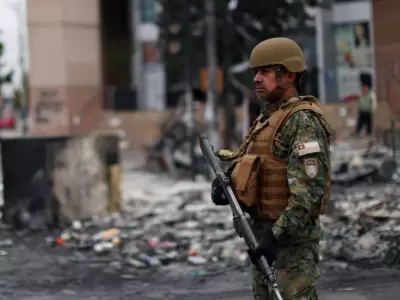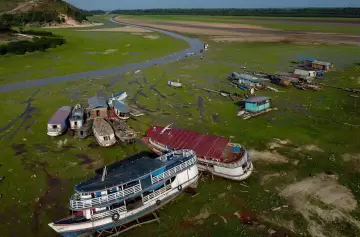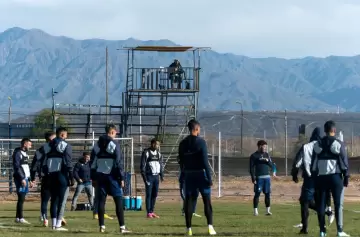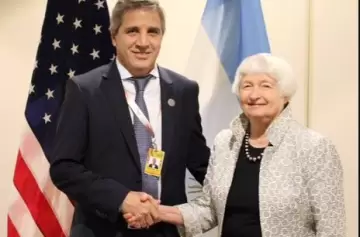Dólar oficial: $950 Dólar blue: $1435 Dólar CCL: $1321
RADIO25 Octubre de 2019 - 12:34

The crisis broke out last week, when, on the recommendation of a Panel of Experts of Public Transport, a technical and autonomous entity, the government of President Sebastián Piñera reported an increase in the price of the metro ticket in the city of Santiago causing it to rise at about $ 1.19. This increase was due to the rise in the US dollar and the price of oil. It unleashed mass demonstrations mainly starring students who broke underground stations and buses, producing fires and expressing their discontent with the announcement.
Quickly the disagreement of the population was evident in the streets against the social polarization and against the different measures taken from the government that, a few days ago, had announced a series of reforms (pension, labor, retirement, etc.).
However, it should be mentioned that the problems have not occurred in recent days but have been accumulating some time ago. There is no doubt that these are days of popular protests that embody the tiredness of a “neoliberal model”.
To this social eruption soon workers, retirees and various organizations, etc., were added, promoting different protests with vandalism, robberies of private property, fires in headquarters of government agencies and looting in different cities of the trans-Andean country in rejection of the announced measures. by the President
Faced with the situation, the president issued a speech to his country. He apologized and announced an increase in pensions, the creation of a guaranteed minimum income and a mechanism to stabilize electricity prices.
These measures did not suffer the effect desired by the government, but, consequently, the situation of social unrest was worsening, causing that on Friday, October 18, President Sebastián Piñera declared a state of Emergency and decreed the curfew for Santiago, Valparaíso and other cities in the region, with which the Government reserves the power to restrict or suspend the exercise of some citizen rights by virtue of national defense or security.
To this social eruption soon workers, retirees and various organizations, etc., were added, promoting different protests with vandalism, robberies of private property, fires in headquarters of government agencies and looting in different cities of the trans-Andean country in rejection of the announced measures. by the President
Faced with the situation, the president issued a speech to his country. He apologized and announced an increase in pensions, the creation of a guaranteed minimum income and a mechanism to stabilize electricity prices.
In this way, Chile has been running for six consecutive nights, with more than 10,500 military and police troops deployed patrolling the streets and, it is promised, the endowment will increase.
Piñera spoke Sunday night surrounded by the high command of the Armed Forces. He began his speech with the phrase “Good Chilean and Chilean nights. We are in war…". This stunned many Chilean citizens and leaders of all opposition parties have criticized heavily through social networks.
Although the population remains in the streets during the curfew, it is noted that the radicality of the people on the street is the protagonist of these days and demonstrates the depth of the crisis.
Faced with this fervent situation, several countries were present. Meanwhile, Michelle Bachelet, as the United Nations High Commissioner for Human Rights, the Church and other international organizations called for an urgent dialogue between the government and the protesters.
In a recent report, the Organization for Economic Cooperation and Development (OECD) and the World Bank mentioned that the quality of life for Chileans has improved in recent decades and that this has been one of the Latin American economies that has most grown in the last time. But there is a chasm between the richest 10% and the poorest 10% of its population. A third of the employees are in informal jobs, one in two Chileans has little literacy. And it should be mentioned that services such as education, health, social security, etc., are privatized.
On the other hand, it is worth mentioning that the riots in that country are gestated shortly before the APEC Summit that will take place between November 16 and 17 and in which the great world leaders will participate (Donald Trump, Vladimir Putin and Xi Jinping) . And from the geopolitical point of view, riots and destabilization in the Chilean country are caused from abroad.
Consequently, the Latin American region has been going through an eruption of waves of protests and claims in the face of the social crisis. Taking into account the context in which the country is immersed, it is evident that the citizen is the only losing protagonist in the face of this crisis situation. With the growing uncertainty it is difficult to elucidate what will happen the following days and what measures the government will take to rethink its internal and external policy.
Más leídas




Fútbol argentino
Independiente Rivadavia vs. Independiente por LPF 2024: día, hora, TV y formaciones

Encuentro en el G20
La Jefa del Tesoro de EE.UU. respaldó la gestión del Gobierno argentino
Por Redacción

Anotalos en la agenda
Xbox Game Pass anunció varios juegos que llegarán en agosto que no te podés perder

